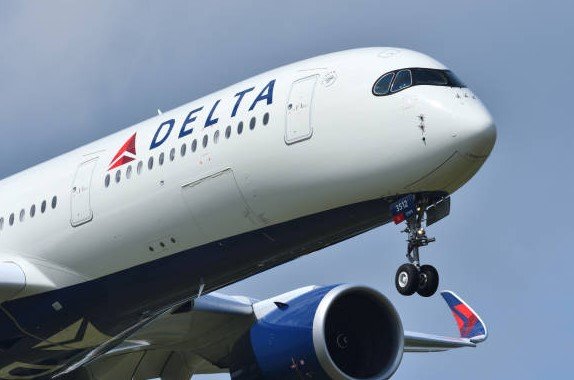Delta Air Lines is facing significant challenges as it continues to recover from a global IT outage that began on July 19, 2024. The outage, caused by a flawed update to an antivirus program, has led to widespread disruptions, including flight cancellations and delays, affecting thousands of passengers. Despite efforts to restore normal operations, the airline is still struggling to manage the fallout, with ongoing issues in crew scheduling and customer service.
Impact on Passengers
The IT outage has left tens of thousands of Delta passengers stranded, unable to reach their destinations on time. Many travelers have reported long wait times for customer service and difficulties in rebooking flights. The situation has been particularly challenging for those with tight schedules or connecting flights, leading to frustration and inconvenience. Delta has promised to provide accommodations and refunds, but the process has been slow, adding to the passengers’ woes.
The disruption has also affected passengers’ luggage, with many reporting delays in receiving their checked bags. The airline is working to reunite passengers with their belongings, but the backlog is significant. This has further compounded the stress and inconvenience experienced by travelers during this period.

In response to the crisis, Delta has implemented a travel waiver, allowing passengers to make one-time changes to their itineraries without incurring additional fees. This measure aims to provide some relief to affected customers, but the overall recovery process remains slow and challenging.
Operational Challenges
Delta’s operational systems have been severely impacted by the IT outage, particularly in the area of crew scheduling. The airline’s crew assignment systems are struggling to catch up, leading to difficulties in staffing flights. This has resulted in numerous flight cancellations and delays, as crews are unable to be assigned to flights in a timely manner. The situation is further complicated by federal regulations that limit the working hours of flight crews, adding another layer of complexity to the recovery efforts.
The airline’s chief information officer has acknowledged the challenges and stated that it will take several more days to fully resolve the issues. In the meantime, Delta is working to restore its systems and improve communication with both passengers and employees. The airline’s leadership has emphasized their commitment to resolving the situation and minimizing further disruptions.
Despite these efforts, the recovery process has been slow, and the airline continues to face scrutiny from both passengers and regulatory authorities. The U.S. Department of Transportation has received numerous complaints about Delta’s handling of the situation and is closely monitoring the airline’s response.
Financial and Reputational Impact
The IT outage has not only caused operational disruptions but also significant financial losses for Delta. The airline has canceled over 5,500 flights since the outage began, leading to substantial revenue losses. Additionally, the cost of providing accommodations, refunds, and other compensations to affected passengers is expected to be considerable.
Beyond the immediate financial impact, the outage has also damaged Delta’s reputation. The airline has faced criticism for its handling of the crisis, with many passengers expressing dissatisfaction with the level of communication and support provided. This negative publicity could have long-term implications for Delta’s brand image and customer loyalty.
In response to the crisis, Delta’s CEO has issued a public apology and assured passengers that the airline is doing everything possible to resolve the issues. The company is also conducting a thorough review of its IT systems to prevent similar incidents in the future. Despite these efforts, the road to full recovery is expected to be long and challenging.
